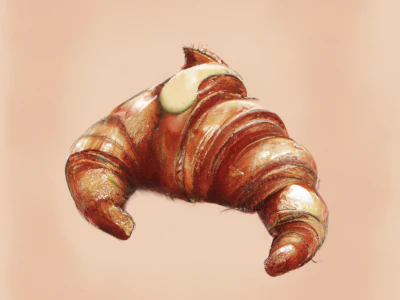

Dear friends, have you ever paused a moment in your bustling kitchen, rolling pin in hand, and pondered the rich lineage of the humble loaf you're about to craft? As the scent of freshly baked goods fills your home, know that the art of baking, steeped in tradition and history, is as old as civilization itself.
Modern baking might dazzle us with its innovations, precision, and diverse palate of flavors, but its heart lies in the ancient hearths where our ancestors first turned grains into sustenance. Baking, an enduring act of alchemy, transforms simple, raw ingredients - flour, water, a touch of warmth - into nourishment for the body and soul.
From primitive flatbreads cooked over hot stones to intricate pastries that adorn our modern tables, the craft of baking echoes the story of human ingenuity and our timeless quest for nourishment and comfort. So, as we immerse ourselves in the baking delights of our modern kitchens, let's take a moment to appreciate the ancient roots and remarkable journey of this beloved culinary craft.
Join me, as we embark on a fascinating journey through time, tracing the evolution of baking from its humble beginnings to the complex culinary science it is today. Let's roll up our sleeves and sprinkle a bit of history into our dough!

Baking is far more than a simple culinary art—it's a complex scientific process that transforms raw ingredients into delectable creations through precise chemical and physical reactions. At its core, baking is a delicate dance of molecular interactions, where proteins, starches, fats, and leavening agents undergo remarkable transformations under heat. When flour is mixed with liquid, gluten proteins begin to develop, creating an elastic network that provides structure to breads and pastries. The protein strands stretch and align, capturing gas bubbles and determining the final texture of the baked good.
Temperature plays a crucial role in the scientific magic of baking. As ingredients heat up, multiple simultaneous reactions occur: proteins denature and coagulate, starches gelatinize, and sugars caramelize, creating complex flavor profiles and distinct textures. The Maillard reaction, a chemical interaction between amino acids and sugars, is responsible for the golden-brown color and rich, complex flavors that develop during baking. This reaction begins around 285°F (140°C) and produces hundreds of different flavor compounds that give baked goods their characteristic taste and aroma.

Leavening agents are another fascinating scientific component of baking, driving the rise and lightness of many baked products. Yeast, baking soda, and baking powder each work through different chemical mechanisms to create gas bubbles that cause dough and batters to expand. Yeast, a living microorganism, produces carbon dioxide through fermentation, while chemical leaveners like baking soda react with acidic ingredients to release carbon dioxide instantly. These microscopic gas bubbles get trapped in the protein and starch networks, creating the characteristic airy structure of breads, cakes, and pastries.
Precision is paramount in baking because of the intricate scientific principles at work. Unlike cooking, where ingredients can be adjusted more freely, baking requires exact measurements and specific techniques to ensure consistent chemical reactions. The ratio of ingredients, their temperature, mixing method, and baking conditions all contribute to the final product's success. Even humidity can impact flour's moisture content and affect gluten development. Professional bakers and food scientists understand that baking is essentially a controlled experiment, where understanding the underlying chemical principles allows for consistent, reproducible results that transform simple ingredients into extraordinary culinary experiences.

Take a moment, dear companions, and join us on an extraordinary expedition through the meandering corridors of time as we unravel the humble beginnings and remarkable metamorphosis of a cherished craft that holds a special place in our hearts - the art of baking. This saga dates back to the earliest civilizations, brimming with ingenuity, exploration, and, naturally, an abundance of mouthwatering delicacies.
Our enchanting chronicle of baking history commences in the midst of a simplistic era, approximately 14,000 years ago, when our ancestors led lives as hunters and gatherers. With the advent of the agricultural revolution, these early pioneers ventured into groundbreaking gastronomic endeavors: they began grinding grains using rudimentary stone tools. The resulting coarse flour was then combined with water, giving birth to a rudimentary form of porridge or coarse flatbread, which they cooked over open fires or hot stones. Although far from the flaky pastries we enjoy in modern times, this marked the genesis of baking.
Leftover flatbread crumbs found in Jordan are the first evidence of baking in the archaeological record. Through experimentation and ingenuity, these early bakers discovered the transformative power of heat on dough. They observed that when exposed to high temperatures, the dough underwent a miraculous metamorphosis, transforming from a dense and chewy mixture into a lighter and more palatable treat. This realization laid the foundation for the future evolution of baking techniques.
The history of baking underwent a momentous transformation around 4000 B.C. within the heart of Ancient Egypt. As fate would have it, an absent-minded baker inadvertently left a dough mixture exposed to the Egyptian air. Upon returning, the dough had remarkably puffed up. The wild yeast present in the environment had fermented the sugars in the flour, generating gas bubbles that caused the dough to rise. This fortuitous incident gave birth to leavened bread, elevating Egyptian bakers to the status of revered masters in their craft.
The Egyptians, renowned for their agricultural expertise, quickly recognized the potential of leavened bread. They harnessed the power of fermentation by capturing and cultivating wild yeast, creating a consistent leavening agent. This breakthrough allowed for the production of lighter, more airy bread with a distinct flavor profile. The popularity of leavened bread spread throughout Egypt, and it became a staple of their diet.

The Romans, known for their spirit of innovation, bestowed a sense of sophistication upon baking. Around 300 B.C., they established the first 'baker's guild,' thereby recognizing and honoring baking as a profession. This marked a significant turning point, as it laid the groundwork for the professionalization and specialization of bakers.
Under the patronage of emperors and wealthy elites, Roman bakers began perfecting the art of bread-making. They developed intricate techniques to create a wide variety of bread, including round loaves, long loaves, and even sweetened bread. The Romans introduced a plethora of grains, such as spelt, barley, and millet, expanding the possibilities of flavors and textures in baked goods.
Furthermore, the Romans revolutionized baking infrastructure. They constructed elaborate ovens with multiple chambers, enabling precise temperature control. These ovens were not only functional but also served as symbols of social status. The Roman bakers' guild became a hub of innovation and expertise, pushing the boundaries of baking artistry.
As we traverse into the Middle Ages, bread firmly entrenched itself as the cornerstone of European diets. Advancements in baking technology, coupled with an expanding repertoire of available flours, fostered the flourishing of this art. Milling techniques improved, allowing for finer and more consistent flour production, which in turn led to the creation of lighter and softer bread.
Interestingly, the type of bread one consumed became an indicator of social status. The privileged classes savored fine, white wheat bread, which was meticulously sieved to remove bran and achieve a pure white color. On the other hand, the less fortunate had to make do with coarse, dark bread made from lower-quality grains.
During this era, baking became intertwined with religious and cultural traditions. Monastic communities played a crucial role in preserving and advancing baking knowledge. They developed new recipes, techniques, and even specialized in creating festive bread and pastries for religious ceremonies and celebrations.
Stepping into the 17th century, the realm of baking witnessed a renaissance. Exploration and trade brought a profusion of new ingredients to European kitchens. Refined sugar, imported spices, cocoa, and exotic fruits found their way into the baker's pantry, igniting a creative explosion in confectionery. Pastry chefs, skilled artisans of their craft, vied for supremacy, fashioning intricate and artistic desserts that delighted the palates of the aristocracy.

Arriving at the dawn of the 18th century, the invention of baking powder revolutionized the baking landscape. This leavening agent provided a consistent and reliable method of achieving light and fluffy textures in baked goods, without the need for wild yeast or sourdough starters. Baking powder opened up new possibilities for home bakers, simplifying the process and ensuring consistent results.
The 19th century brought further advancements with the commercial production of yeast. This mass-produced yeast, in convenient and standardized forms, made it even easier for bakers to achieve reliable and predictable results in bread and pastry making. The accessibility of yeast spurred a surge in home baking and the establishment of bakeries.
The subsequent Industrial Revolution further transformed the baking industry. Technological advancements, such as mechanized milling and automated baking processes, allowed for large-scale production and widespread distribution of baked goods. Bakeries sprouted in towns and cities, offering an array of freshly baked bread, pastries, and cakes to communities far and wide.
In our present era, baking transcends its role as a mere means of food preparation. It stands as a cherished link to our past, a conduit for creative expression, and a source of daily delight. Rooted in ancient practices and refined over countless millennia, the art of baking represents an integral part of our shared heritage.
So, the next time you knead a batch of dough or retrieve a fresh loaf from the oven, bear in mind that you are partaking in a tradition steeped in history, a narrative imprinted in every grain of flour and every bubble of yeast. Isn't that something to savor? Until our next culinary chronicle, keep those hearths warm and let the bread continue to rise. Remember, Granny loves you!

Baking is more than just a culinary art - it's a journey through time that connects us to our ancestors and the very roots of human civilization. This ancient practice, which transforms simple ingredients into delightful creations, has evolved from primitive methods to a sophisticated culinary science. Preheat the oven for some of Granny's favorite baking recipes.
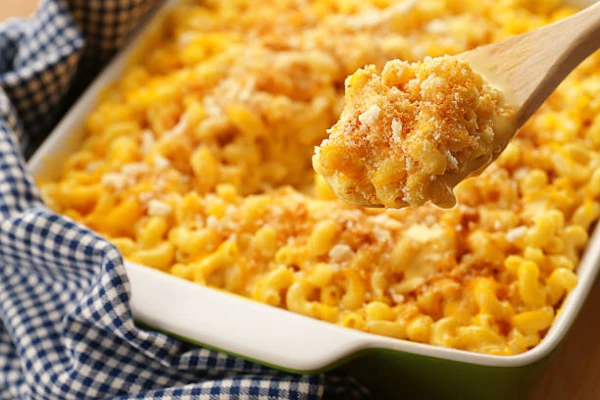
Macaroni and cheese remains a timeless favorite that brings comfort and satisfaction to people of all ages. Granny's recipe is an explosion of cheesy goodness that keeps everyone reaching for more!
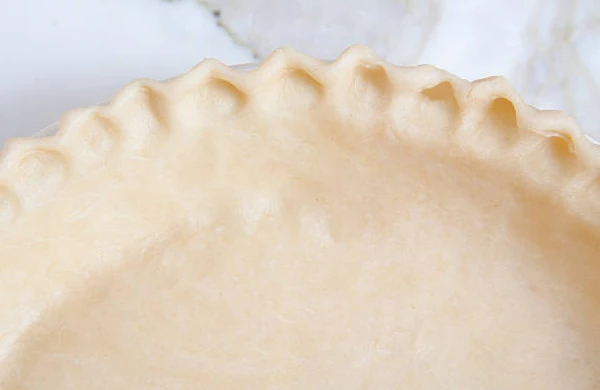
Discover the secret to a flaky, buttery pie crust with our all-purpose recipe. Perfect for both sweet and savory pies, this crust is a must-have in your baking repertoire.
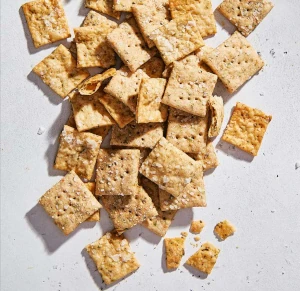
Experience the delight of baking with our homemade Sourdough Crackers recipe. These crispy, flavorful crackers are a perfect snack.
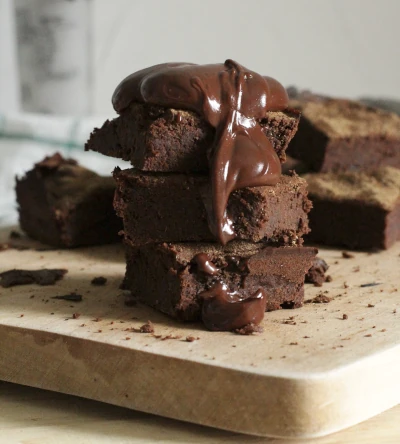
Enjoy Granny's Chocolate Brownies, a rich and decadent dessert that chocolate lovers will adore. Made with three types of chocolate and a fudgy texture, they're perfect for dessert or as a snack.